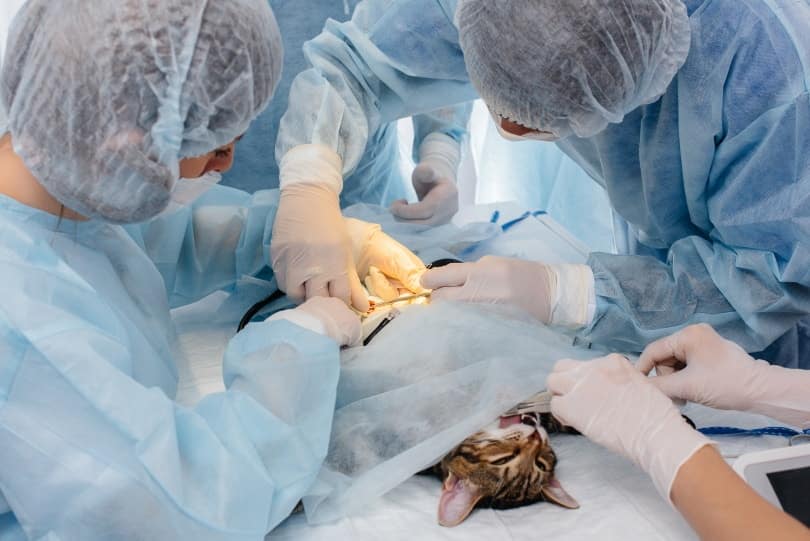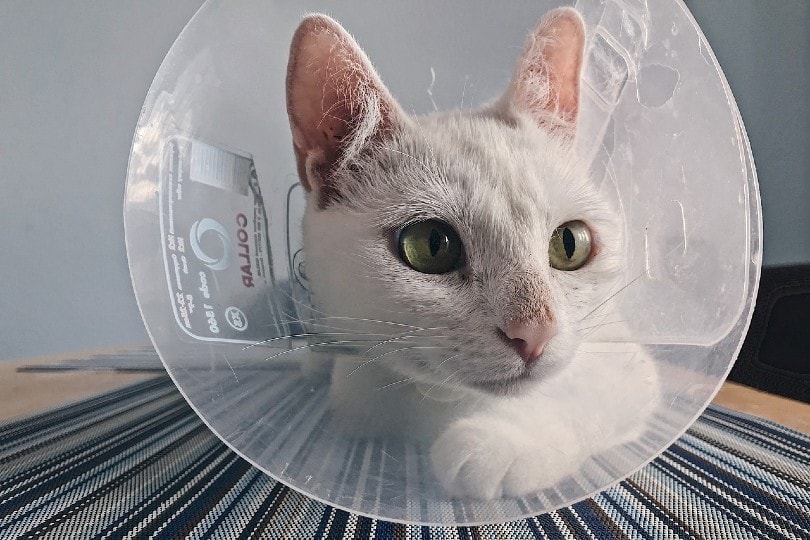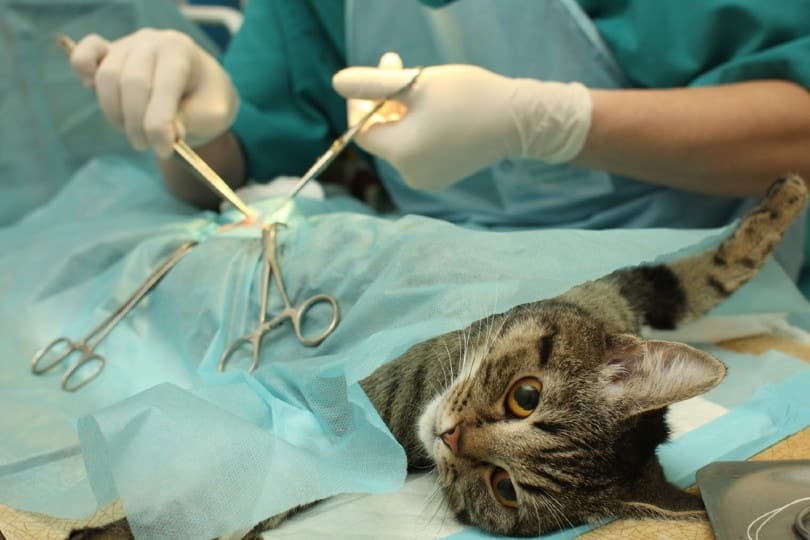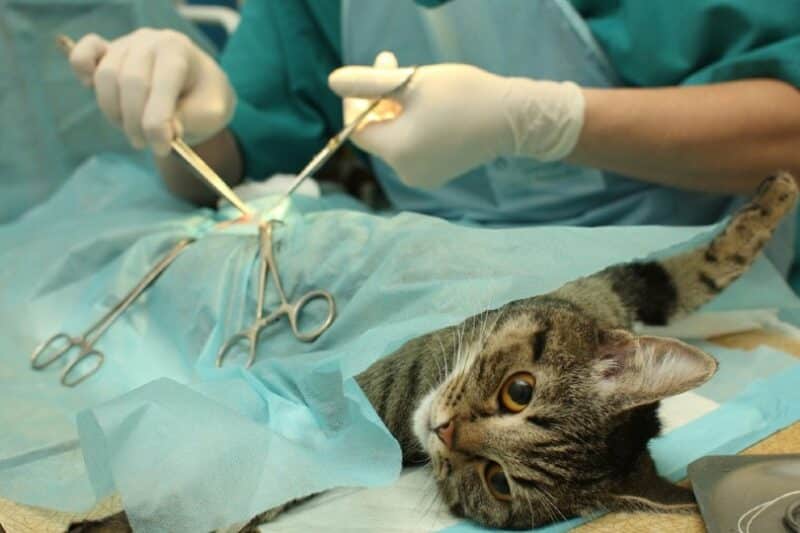Over the years, the recommended age for spaying or neutering cats has changed. There are still varying opinions, but most veterinarians agree that the best time to do it is before a cat’s first heat. The standard age is around 6 months, though more and more vets are advocating for early spay/neuter, which can occur in kittens as young as 8 weeks old.
Keep reading to find out more about early spay/neuter and the benefits of neutering or spaying your cat.

What Happens When a Cat Is Spayed or Neutered?
When a cat is spayed or neutered, its reproductive organs are removed so that it cannot reproduce. In females, the uterus, ovaries, and fallopian tubes are removed; in males, the testes are removed. The surgery is performed with your cat fully asleep and under anesthesia. Cat neuter surgeries are very quick, so they are given a face mask to assist with breathing, while female cats being spayed are normally intubated. The surgery lasts only about 2 minutes for males and can last around 20 minutes for females. Cats tend to recover quickly from the surgery and will typically wake up after 10 to 20 minutes.

What Are the Benefits of Neutering or Spaying My Cat?
The primary reason to spay or neuter an animal is to prevent overpopulation. Each year, millions of cats and dogs enter animal shelters in the U.S, and nearly half of those animals are euthanized. The majority of the animals that are euthanized are healthy, but shelters struggle to manage and find homes for the sheer number of cats and dogs they receive. By spaying or neutering your cat, you can prevent unwanted animals and contribute to ending this very sad cycle of euthanasia.
Another benefit of neutering or spaying your cat is that doing so can eliminate potential health problems down the road. Spaying female cats before their first heat cycle has been shown to dramatically lower their chances of developing mammary neoplasia, which is a common cancer among cats. Spaying or neutering also eliminates the risk of disease of the testes, uterus, or ovaries. Studies have shown that spayed or neutered cats have a higher life expectancy than intact cats, although there are many different factors that likely contribute to this.
Finally, there are behavioral benefits to “fixing” your cat. This is especially true for male cats, who are more likely than females to display unwanted sexual behaviors such as roaming, urine spraying, vocalizing, and fighting.

What Is Early Spay/Neuter?
Early spaying or neutering refers to the relatively early time frame of spaying or neutering your pets. The benefit of spaying or neutering your cat at such an early age is that you can eliminate any problem behaviors before they occur. Cats reach sexual maturity at around 6 months of age, so waiting until 5 or 6 months may be too late to prevent behavioral problems.

Is Early Spay/Neuter Safe?
Though some may express concern over spaying or neutering a cat at such an early age, veterinarians overwhelmingly report that early spays and neuters are just as safe if not safer than surgeries that take place around 6 months of age. Having the surgery done early can also prevent unwanted pregnancies, which can happen when cats are as young as 4 months of age. Surgeries for younger cats are easier to perform and shorter because the cats are smaller. Younger cats are also capable of recovering more quickly than older cats.
Other Concerns
One argument against early neutering is that there are claims it leads to urinary tract disease in male cats. However, there is no evidence to suggest that the occurrence of lower urinary tract disease is correlated with early neutering.
Another concern is that your cat will gain weight after the surgery. It is true that spayed females and neutered males have a tendency to gain weight after surgery, although weight gain can be prevented with exercise and an appropriate diet. If your cat is spayed or neutered as a kitten, weight gain may be appropriate as part of your cat’s normal growth. You should know that males who are neutered before sexual maturity are likely to have smaller heads than intact cats or cats that were neutered after 6 months of age.

Conclusion
There are many benefits to spaying or neutering your cat. Spaying or neutering your cat early on can prevent unwanted pregnancies that lead to overpopulation and high shelter intake. It can also prevent health problems and unwanted sexual behaviors, particularly in males. Most veterinarians agree that it is important to spay female cats before their first heat, though there is some debate about whether the surgery should be performed earlier than 5 or 6 months of age. Even if you have an older cat that is still intact, having it spayed or neutered could be beneficial, especially if your pet is displaying unwanted behaviors. If your cat is not yet spayed or neutered, talk to your vet about the best time to spay or neuter your animal.
Featured Image Credit: De Visu, Shutterstock






